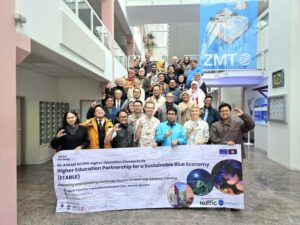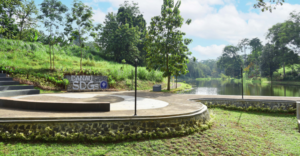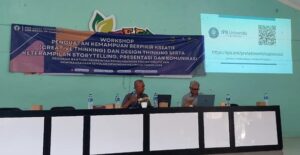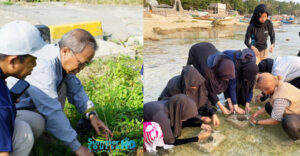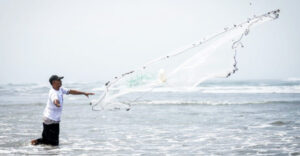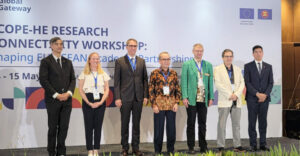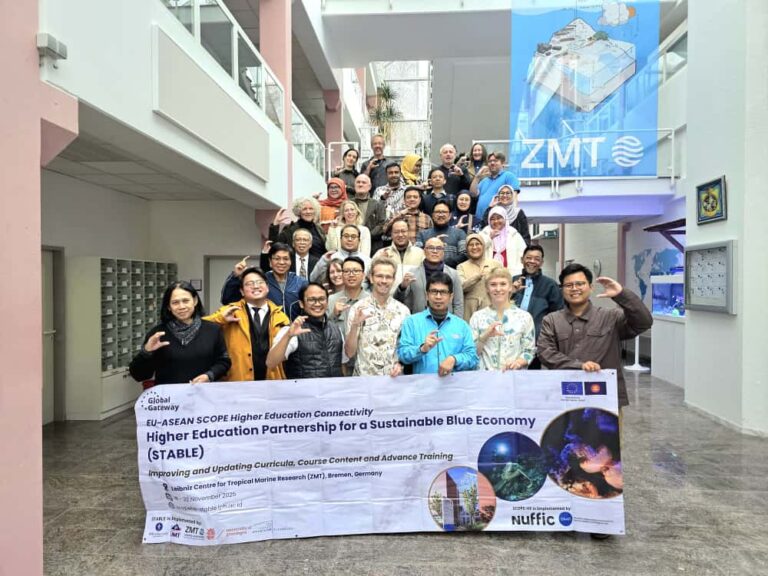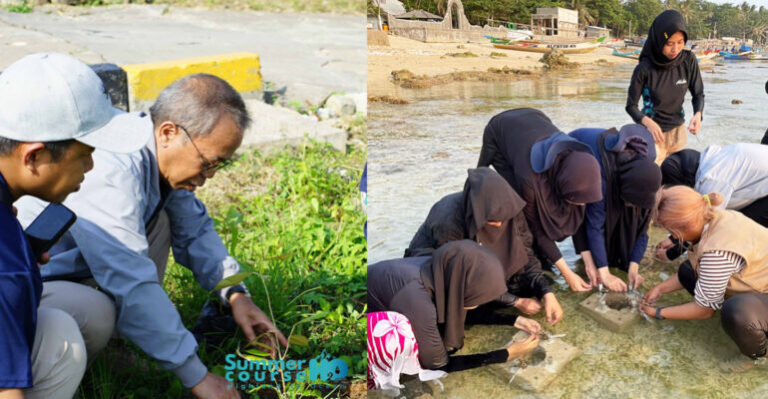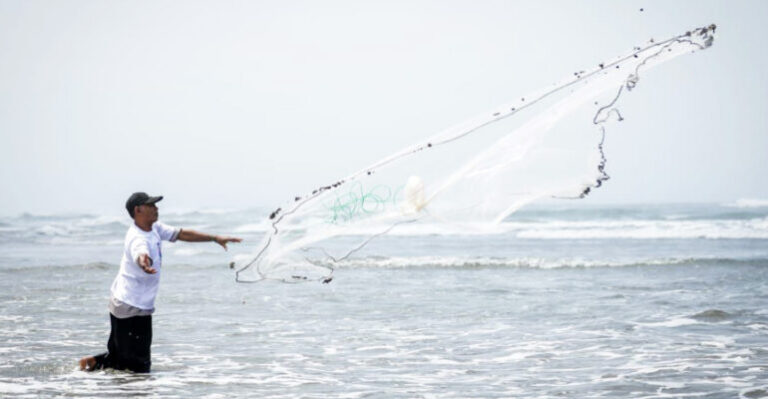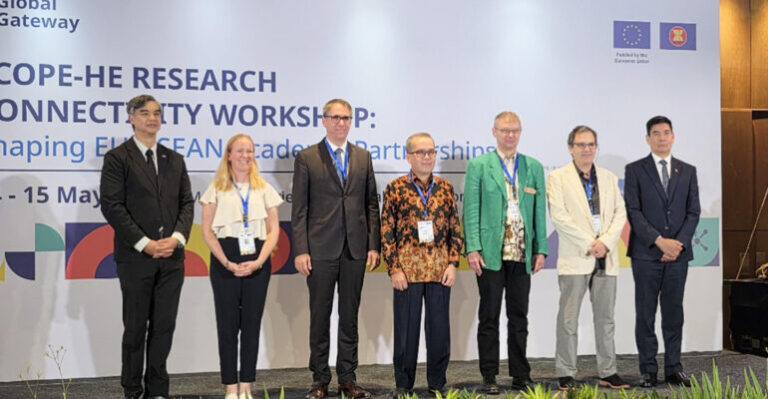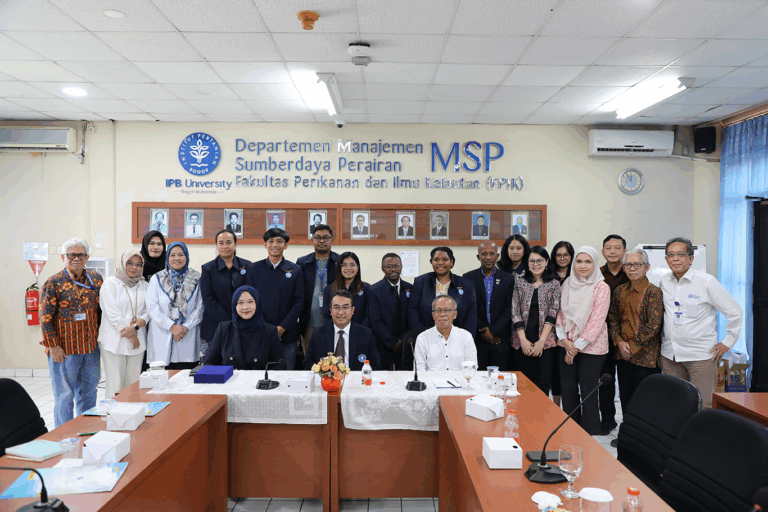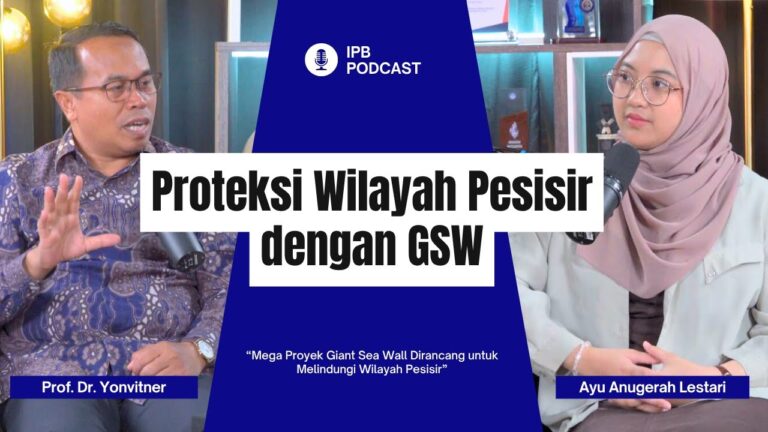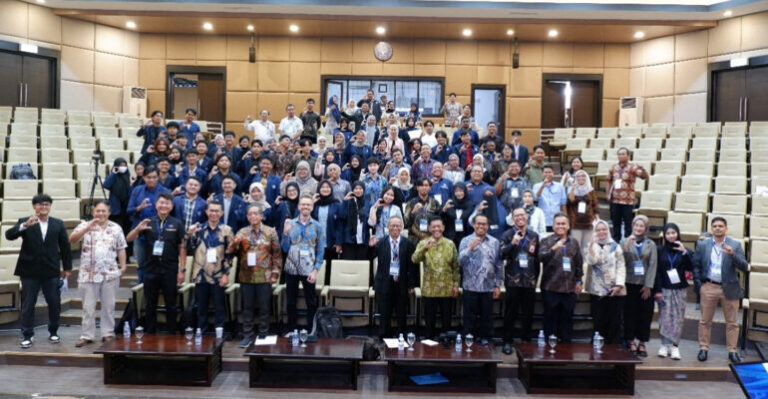IPB University Professor (Prof. Hefni Effendi) Proposes Initial Concept of Ecosystem Services Assessment to KLHK
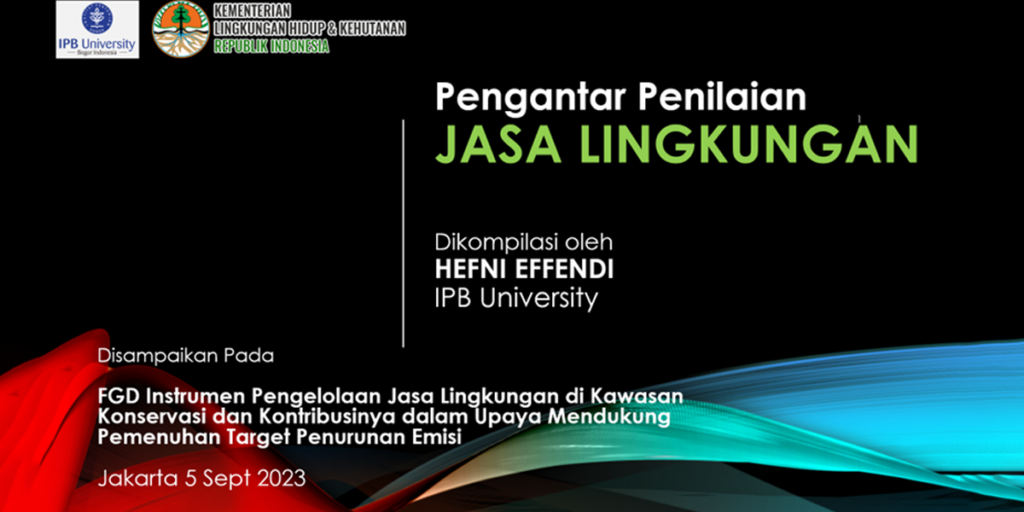 Prof. Hefni Effendi, Chair of the Department of Aquatic Resources Management (MSP), Faculty of Fisheries and Marine Sciences (FPIK) IPB University shared efforts to improve academic performance in a workshop held at the University of Borneo Tarakan (UBT), North Kalimantan. Efforts to improve academic performance are carried out via sharpening the learning outcome hierarchy of the subjects taught at the UBT MSP Department, in order to improve the competency of its graduates.
Prof. Hefni Effendi, Chair of the Department of Aquatic Resources Management (MSP), Faculty of Fisheries and Marine Sciences (FPIK) IPB University shared efforts to improve academic performance in a workshop held at the University of Borneo Tarakan (UBT), North Kalimantan. Efforts to improve academic performance are carried out via sharpening the learning outcome hierarchy of the subjects taught at the UBT MSP Department, in order to improve the competency of its graduates.
The sharpening of this learning outcome begins with reformulating the vision and mission of the UBT MSP Department so that it is adaptive to market demands and graduate users. The workshop was attended by all lecturers in the MSP UBT Study Program. To get input from external parties (stakeholders), UBT has conducted workshops by inviting alumni and graduate users. A number of inputs were provided in the context of curriculum reconstruction.
“Periodically, the learning curriculum must be updated so that it is always adaptive to developing knowledge and real needs in the world of work. In fact, the curriculum needs to be enriched with instruments that support the management of aquatic resources with contemporary nuances, which are currently becoming a trend among the business world, researchers and academics,” said Prof. Hefni.
Based on the vision and mission, the learning outcome hierarchy is cascaded to each course that is currently being implemented. A number of courses were also dissected and reviewed to what extent they accommodated the intended learning outcomes.
“Through this cascading, a number of subject modifications were obtained through mergers and the addition of certain subjects in the Semester Learning Plan (RPS) courses to substitute courses that have been agreed to be less relevant to current conditions,” he commented.
In addition, Prof. Hefni added that the Free Campus Independent Learning (MBKM) program should be carried out by all universities, including UBT. MBKM is included as part of the curriculum which has a semester credit unit load (SKS). Therefore, MBKM is part of academic activities that all students must participate in. The implementation of MBKM becomes an assessment material for university performance, known as key performance indicators (IKU).
“In fact, the government provides grants through the Independent Campus Competitive Program (PKKM) to accelerate the implementation of MBKM. This grant also ensures that the MBKM program implemented by the study program can be structured. In this case, the IPB University MSP Study Program will receive the grant in 2023 and 2024. The structured MBKM that is carried out is the thematic Blue Carbon and Blue Economy MBKM,” said Prof. Hefni.
In this sharing discussion at UBT, the latest vision and mission of the UBT MSP Department has been formulated which carries the concept of UBT as a university that is on the front porch of Indonesia, which is on the border with Malaysia and the Philippines. Apart from that, there are unique courses which are the hallmark of UBT, namely courses on share stock of fishery resources, bearing in mind that there are freshwater fish and marine fish that migrate between countries, both for breeding and feeding.
“Reconstruction of courses in the context of integrating the MBKM program has also been successfully carried out. Thus, an increase in UBT KPI through the application of MBKM can later be achieved,” hoped the Dean of FPIK UBT, Dr. Rukisah when closing this sharing. He hopes that UBT’s collaboration with IPB University will not only stop here, but can run within the framework of other higher education tridharma activities.
Sources: IPB News
